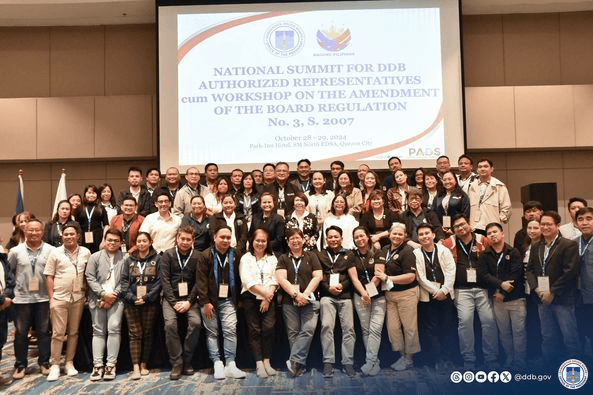Reintegration of drug dependents to society boosted by DDB program
By Chito Chavez

The Dangerous Drugs Board (DDB) has adopted measures that provide the persons who use drugs (PWUDs) with the essential platforms in addressing the challenges that they face in the court of law in preparation for their reintegration in mainstream society.
In the DDB hosted National Summit, the stakeholders aim to empower the PWUDs, who bravely chose rehabilitation, by giving a more supportive scenario that will eventually lead them to a successful reintegration in the society.
Aligned with the DDB authorized representatives with the amendments to Board Resolution No 3, Aries of 2007, the summit governs the voluntary confinement for the treatment and rehabilitation of drug dependents.
The DDB explained that the summit provides the PWUDs being represented in the courts with the much needed boost as they embark on their journey to treatment and rehabilitation.
“Key stakeholders gathered to exchange insights, reinforce their roles and responsibilities, and develop concrete, actionable strategies to enhance legal representation for those seeking recovery,’’ the DDB stated.
To further amplify the country’s drug prevention advocacy among the youth, the DDB also noted that it hooked up with educators, youth leaders, social workers, sports and health personalities as well as the local Anti-Drug Councils.
Through the “Facilitator’s Training on Personal and Interpersonal Skills,’’ the DDB stated that it has equipped the facilitators “with essential soft skills such as communication, empathy, critical thinking, and adaptability, to connect with young learners in a meaningful way.’’
By focusing on these skills, the DDB stressed that the facilitators can make drug prevention messages more relatable and impactful to the public.
During the activity, the DDB said the "Harnessing Peer Support" module was presented in the training where the power of peer networks in promoting resilience and personal growth were highlighted.
“Facilitators learned practical strategies for fostering mutual support, sharing experiences, and empowering youth to make positive, informed choices,’’ the DDB added.